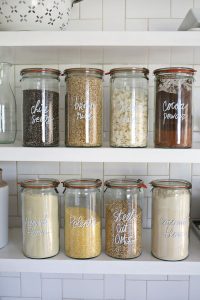Bisphenol A
Bisphenol A- also known as BPA is synthetic based compound that is plentiful in modern day life. BPA is manufactured in large quantities for use primarily in the production of polycarbonate plastics and epoxy resins.BPA is used in plastic water bottles, canned food and drink, coffee and beer cans and cash receipts. It has been well documented in medical literature that BPA can cause widespread damage throughout our bodies.
Most of the population are exposed to BPA levels shown to be harmful in laboratory studies. Still this is a product in tens of thousands of consumer products today.
Toxic effects of BPA
- Endocrine disruptor: Endocrine disruptors are chemicals that may interfere with the body’s endocrine system and produce adverse developmental, reproductive, neurological, and immune effects in humans. The NTP Center for the Evaluation of Risks to Human Reproduction completed a review of BPA in September 2008. The NTP expressed “some concern for effects on the brain, behaviour, and prostate gland in foetuses, infants, and children at current human exposures to bisphenol A.
- Lowers Vitamin D levels: Vitamin D deficiency has been linked to cancer, immune deficiency, mood disturbances, osteoporosis and other chronic health conditions. A recent study in 2016 published in The Journal of Endocrinology suggested that BPA affects the active form of Vitamin D similar to how it affects other hormones. (1)
- Trigger for obesity: One study found people with higher levels of BPA in their urine were twice as likely to be obese than those with lower levels of this synthetic compound. (2).
Nurse Fiona’s tips to reduce BPA exposure
- Ditch the plastic! Swap plastic Tupperware containers for glass or stainless steel containers.

- Ensure you are not eating food that has been warmed in plastic (whether this be the container or lid). Large amounts of BPA can leak into food sources when exposed to heat or sunlight.
- Avoid drinking from plastic bottles. These bottles are usually stored in sun or heat and they have a larger amount of BPA in water. Opt for glass bottles
- Store produce in glass jars instead of plastic containers. You can buy these at a reasonable price from Amazon or recycle old jars. These will last you a lifetime.
References
- https://www.ncbi.nlm.nih.gov/pubmed/27648964
- https://www.ncbi.nlm.nih.gov/pubmed/27801986
